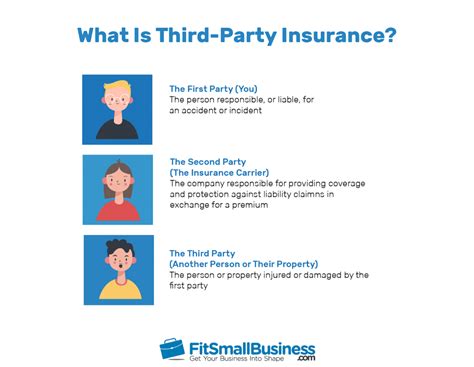Discover the benefits and misconceptions of voluntary life insurance. Learn about different types and how to choose the right policy for you.
Understanding Voluntary Life Insurance
Contents
Voluntary life insurance is a type of benefit offered by employers to their employees. It provides an additional layer of financial protection for the policyholder’s loved ones in the event of the policyholder’s death. Unlike employer-provided life insurance, voluntary life insurance allows employees to choose the coverage amount and pay the premiums themselves. This gives employees more control over their life insurance coverage.
One common misconception about voluntary life insurance is that it is not necessary if you already have employer-provided life insurance. However, voluntary life insurance can be a valuable supplement to employer-provided coverage, especially for those who have dependents or a spouse who relies on their income. It can provide additional financial support to cover expenses such as mortgage payments, college tuition, and daily living costs.
There are different types of voluntary life insurance policies available, including term life, whole life, and universal life. Term life insurance provides coverage for a specific period, while whole life and universal life insurance provide coverage for the policyholder’s entire life. Each type of policy has its own benefits and drawbacks, so it’s important to carefully consider your needs and financial situation before choosing a policy.
When choosing voluntary life insurance, it’s important to assess your financial situation and the needs of your loved ones. Consider factors such as your income, debts, and expenses, as well as your family’s financial needs in the event of your death. You may also want to consider adding additional coverage for things like funeral expenses and outstanding debts, to provide your loved ones with even more financial security.
Benefits of Voluntary Life Insurance
Voluntary life insurance offers numerous benefits to individuals and their loved ones, providing a sense of security and peace of mind. One of the primary advantages of voluntary life insurance is the flexibility it offers in terms of coverage. Policyholders have the freedom to choose the amount of coverage that best suits their needs and budget, allowing them to customize their policy to fit their individual circumstances.
Additionally, voluntary life insurance often provides the option for policyholders to add supplemental coverage for themselves, as well as their spouse and dependents. This additional coverage can help ensure that loved ones are financially protected in the event of an unexpected tragedy, such as the loss of a primary income earner.
Another key benefit of voluntary life insurance is the portability it offers. Unlike employer-sponsored life insurance, voluntary policies can typically be taken with the policyholder if they change jobs or retire. This ensures that individuals can maintain their coverage even if their employment situation changes, providing continuity and stability for themselves and their family.
Furthermore, voluntary life insurance policies often come with benefits and features that can assist policyholders during their lifetime. These may include access to financial planning resources, wellness programs, and accelerated death benefits that can be used to cover medical expenses in the event of a terminal illness.
Different Types of Voluntary Life Insurance
Different Types of Voluntary Life Insurance
When it comes to voluntary life insurance, there are a few different types that individuals can choose from. One of the most common types is term life insurance, which provides coverage for a specific period of time. This can be a good option for those who only need coverage for a certain period, such as while paying off a mortgage or until children are grown.
Another type of voluntary life insurance is whole life insurance, which provides coverage for the insured’s entire life. This type of policy also has a cash value component, which can be borrowed against or withdrawn in some cases. Whole life insurance is a good option for those who want coverage for their entire life and who want the added benefit of a cash value component.
Some voluntary life insurance policies also offer the option to purchase additional coverage for spouses and children. This can be a valuable option for individuals who want to ensure that their entire family is protected in the event of a tragedy. By adding coverage for spouses and children, individuals can have peace of mind knowing that their loved ones will be taken care of financially.
Finally, there are also voluntary life insurance policies that offer the option to purchase riders, which are additional benefits that can be added to a policy for an extra cost. Common riders include accidental death and dismemberment coverage, which provides an additional benefit if the insured dies in a covered accident or loses a limb. Other riders may include critical illness coverage, which provides a benefit if the insured is diagnosed with a serious illness.
Overall, there are several different types of voluntary life insurance policies to choose from, each with its own unique features and benefits. It’s important for individuals to carefully consider their needs and research their options before selecting a policy that best fits their financial and personal situation.
How to Choose Voluntary Life Insurance
When it comes to choosing voluntary life insurance, there are several important factors to consider. One of the first things to think about is the coverage amount. You’ll want to make sure that the policy provides enough coverage for your loved ones in the event of your passing. Consider your current financial obligations, such as mortgage payments, car loans, and childcare expenses, and also think about future expenses like college tuition for your children. It’s important to choose a coverage amount that provides financial security for your family.
Another factor to consider when selecting voluntary life insurance is the type of policy that best suits your needs. Term life insurance offers coverage for a specific period of time, while permanent life insurance offers coverage for your entire life. Each type has its own advantages and drawbacks, so it’s important to carefully consider which type of policy aligns best with your financial goals and long-term needs.
Additionally, it’s crucial to research the reputation and financial stability of the insurance company offering the policy. Look for a company with a strong track record of financial stability and a reputation for outstanding customer service. This will give you peace of mind knowing that your loved ones will be taken care of when they need it most.
Finally, consider any additional benefits or riders that may be offered with the policy. Some policies may offer accelerated death benefits or disability income riders, which can provide financial assistance in the event of a terminal illness or disability. These additional benefits can provide extra layers of financial protection for you and your family, so it’s important to carefully consider what may be available with each policy.
Common Misconceptions about Voluntary Life Insurance
There are many misconceptions surrounding voluntary life insurance that may prevent people from considering it as an essential part of their financial planning. One common misconception is that voluntary life insurance is only necessary for people with dependents. However, voluntary life insurance can also provide financial protection for single individuals, covering expenses such as funeral costs and outstanding debts.
Another misconception is that voluntary life insurance is too expensive. In reality, the cost of voluntary life insurance can be affordable, and there are various policy options available to suit different budgets. Additionally, many employers offer voluntary life insurance as part of their benefits package, making it even more accessible.
Some people also believe that their existing life insurance policy through their employer is sufficient, and they do not need to consider additional coverage. However, employer-provided life insurance may not be enough to meet the financial needs of an individual’s beneficiaries. It’s important to assess your coverage needs and consider supplemental voluntary life insurance to bridge any gaps in your existing policy.
Lastly, there is a misconception that voluntary life insurance is only for older individuals. It’s important to understand that anyone, regardless of age, can benefit from voluntary life insurance. In fact, obtaining coverage at a younger age can result in lower premiums and better health ratings, providing long-term financial security for you and your loved ones.












